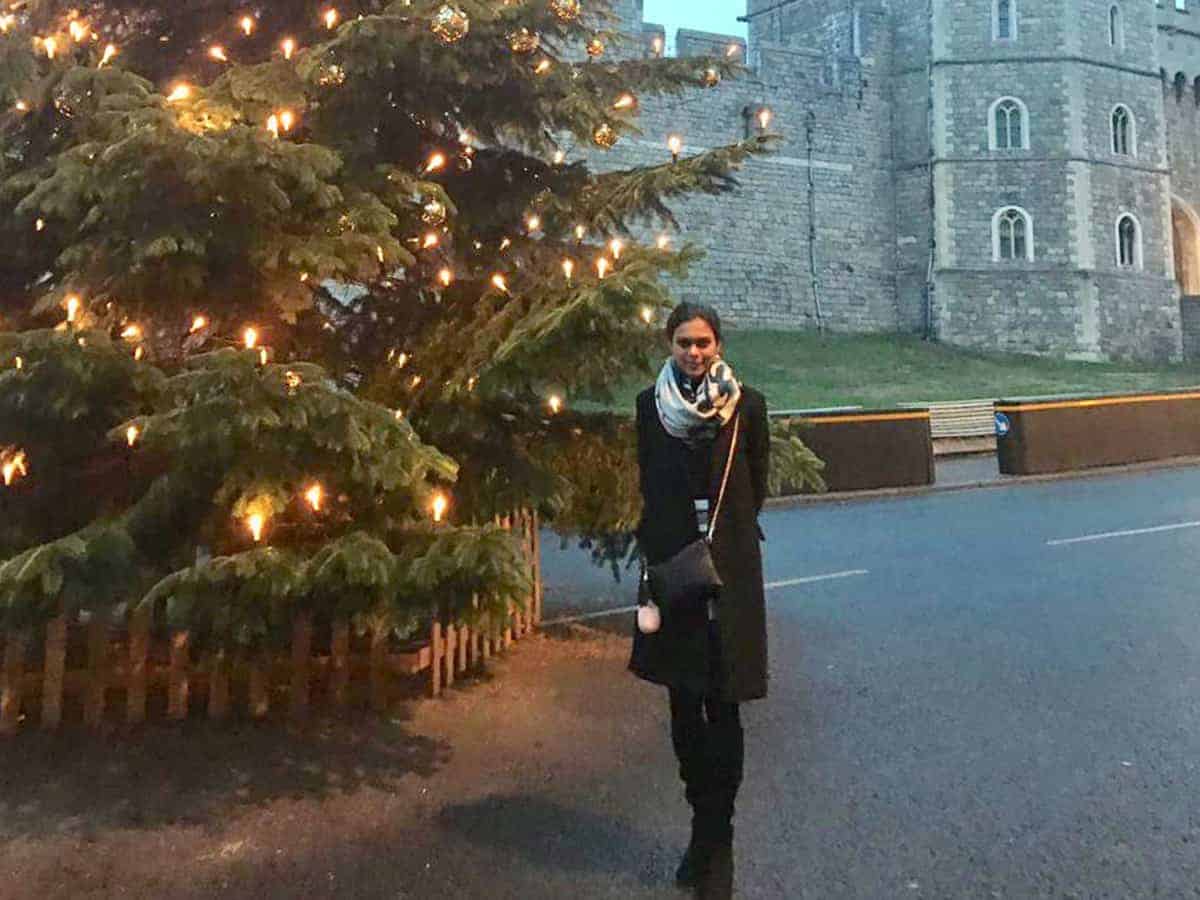Bengaluru: “Cultivate the habit of reading regularly, fiction or otherwise. It helps you to explore new thoughts and themes (even at a subconscious level) that will always hone your skill set! Know your stuff, deeply. Make sure what you’re certain about is the right thing to be certain about, but always be open to constructive critiques. Self-doubt in an academic should be eternal.”
These words come from Sanaa Alvira, a fresh alumna of the London School of Economics and Political Science (LSE). The Bengaluru girl has just returned with her M.Sc. in International Relations from the institution that has produced the likes of Dr. Manmohan Singh and Amartya Sen.
Sanaa, daughter of a Bengaluru couple, had begun to explore her likes and dislikes while on a visit to Germany for a presentation even as she was studying in 9th standard in Bengaluru based Delhi Public School. The visit was part of a students’ exchange programme. She says this sowed the first seeds of motivation in her to better understand how nations interacted with each other. At the Plus Two level she opted for History, Political Science, Economics and Psychology which laid the foundation for a multi-disciplinary course in International Relations. Her parents stood by her choice of St. Stephens College, Delhi for the BA Programme where she opted for History and Political Science.
By the end of the second year of her UG course, she had begun looking for institutions for post graduation studies and narrowed down to three choices i.e., LSE, The Lee Kuan Yew School of Public Policy, Singapore, and the Graduate Institute Geneva. LSE, was of course top on her list for its formidable reputation for Political Science, and for being consistently ranked among one of the world’s top five universities. The application process began in August 2017 even while she had entered the final year of her BA programme.
Asked why she went for International Relations and not pure Economics, Sanaa says she was more drawn to the study of political science. “Involvement in programmes like Model United Nations (MUN) together with stimulating classroom discussions at the St. Stephens’ had etched to relief her passion for International Relations for the Master’s,” she commented.
According to her, LSE’s strength lies in its highly diverse students body and faculty. The campus had students from as many as 148 countries who spoke more than a hundred languages. She says, the school’s commitment to an inclusive university that allows for critical perspectives from the rich and varied experiences of its students body shines through. Even her MSc International Relations Programme had around hundred students thereby allowing a rich interaction in a diverse environment.
Sanaa says the M.Sc. International Relations at the LSE is an advanced, academic study of the subject from a global perspective. The course she chose included the study of the formulation and implementation of foreign policy through the selective use of case studies, and the study of various international institutions through key theoretical perspectives. While the core course programme provided a historical and theoretical analysis of the concepts of international relations, it also involved submission of a 10,000-word dissertation. She further narrowed her focus on nuclear politics and would like to study various dimensions of key nuclear issues, in case she has to pursue further studies or research.
Sanaa would like the youth to not restrict themselves to usual choice like Engineering, Commerce or Management. She advises the parents against foisting their choices on the children and feels that the youth have a very high chance of attaining excellence in what they love rather than being coerced into doing what their parents want of them. She desires that the students should reach out to working professionals, talk to professors and do some basic research on the Internet in order to lay down a trajectory for themselves.

